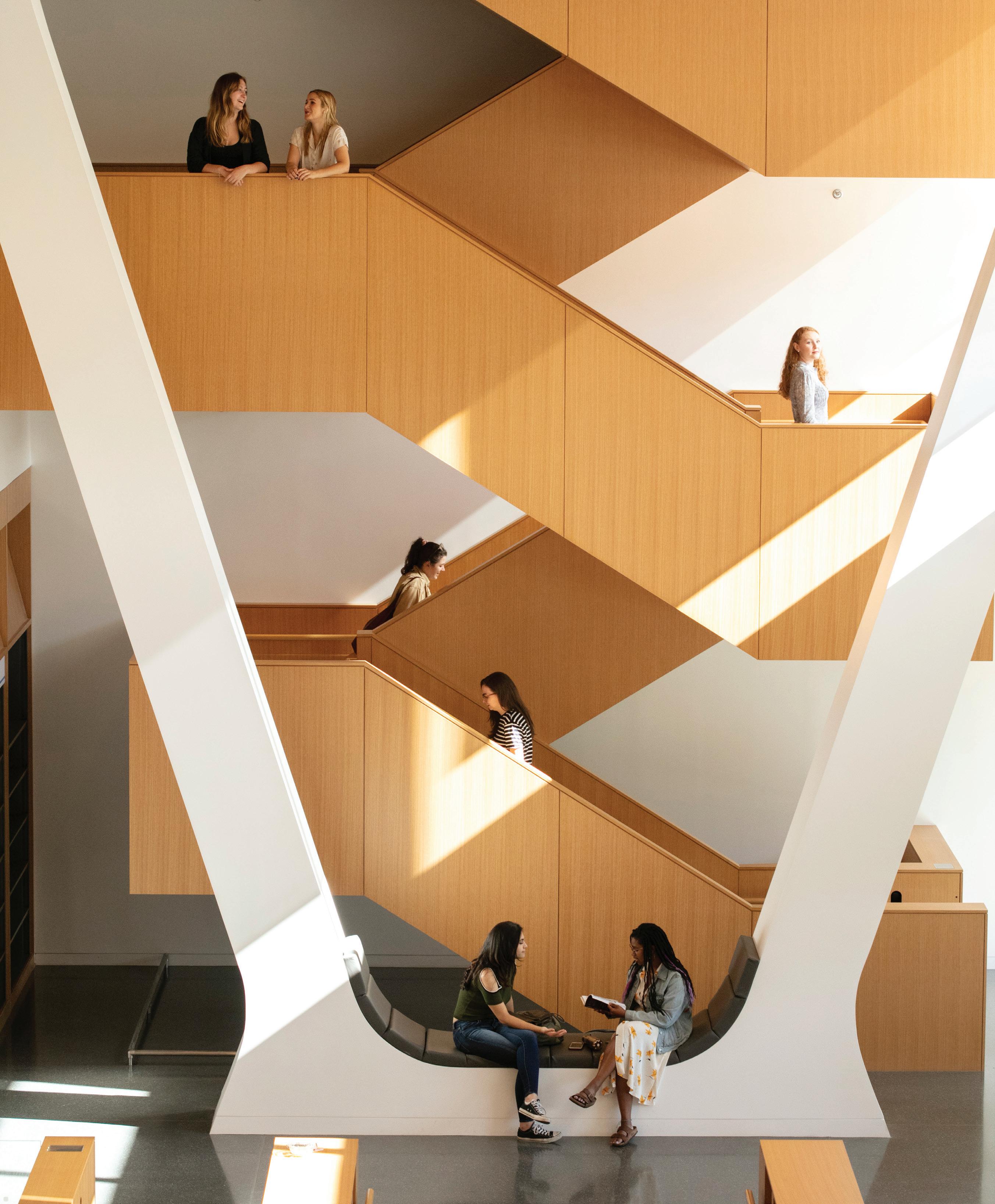
10 minute read
Dispatches
News. Musings. Insights.
Headlines
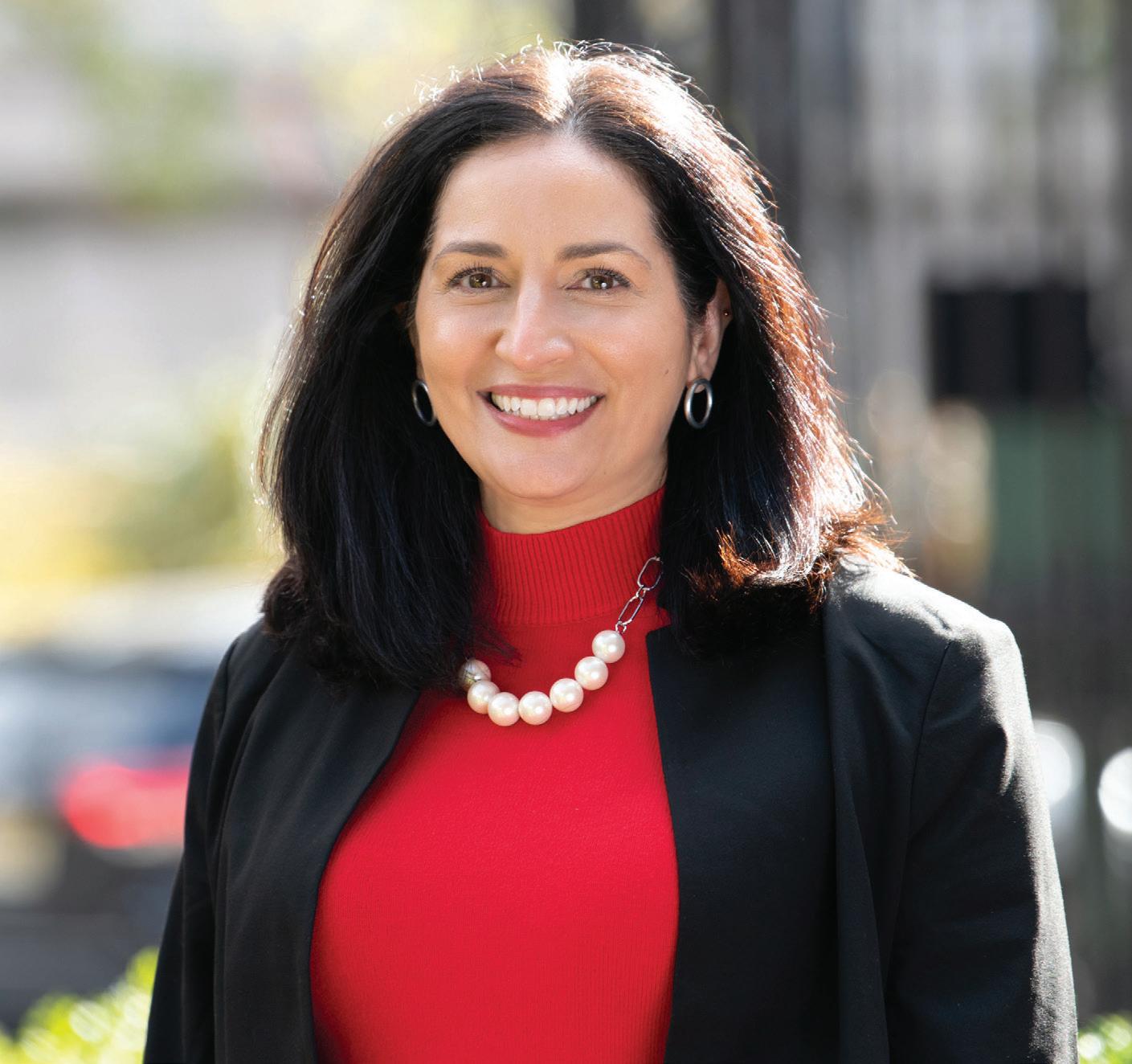
Meet Our New Chief Health Officer
by Nicole Anderson ’12JRN
This fall, Dr. Marina Catallozzi joined Barnard as the inaugural Vice President of Health and Wellness and Chief Health Officer. In this new role, she’s leading the Francine A. LeFrak Foundation Center for Well-Being in addition to overseeing the Primary Care Health Services, the Rosemary Furman Counseling Center, and the Pandemic Response Team. We caught up with Dr. Catallozzi to chat about her work in adolescent health and her own wellness practices.
What excites you most about this new position?
I’ve been really focused on adolescent and young adult health my entire career, but wellness has always been woven into that work. In this role, I get to address physical health, mental health, and financial wellness not only for students in the community but also for everyone who’s part of their support network, including faculty and staff. I was a first-generation student myself, and this is something that would have been incredibly helpful to have in college.
The idea of the Feel Well, Do Well initiative and the Francine LeFrak Center is to provide built-in scaffolding for people as they develop the skills that they’ll bring to the workplace and for them to be able to support their own wellness as they deal with challenges in the future. Critical to this framework is the lens of diversity and inclusion — and ensuring that really everyone has access to these resources. In this way, wellness can be tailored both to each individual and to the community as a whole.
What kinds of resources do students need to thrive?
With our Pandemic Response Team, we’re going to continue to work on setting up a system where we can say to students: “We have the scaffolding in place — testing, contact tracing, clear policies on vaccination and masking — so that you don’t have to worry about it.” We want to create an environment where you have trust in us and trust in the system that we’ve created. This includes communication with the leadership of the College to ensure that we’re always thinking about the best way to protect the Barnard community.
With the Francine LeFrak Center, we’ll be looking at the ways in which we can bake wellness into a person’s development both during their time at Barnard and in the future. The programming that we’re building out right now will be focused on how to help people identify what they want or need to work on and how to do that in a supported way throughout their college experience.
How do you practice wellness?
This need for wellness practices has really come to the forefront for me in the past two years. My partner is an adult infectious disease provider, and our children are 12 and 16 years old. We were on the frontlines every day at the height of the pandemic, and so we really needed to build in some sustainable practices. One thing we did as a family was Self-Care Sunday, which included one person getting to choose a family activity like a game, meal, movie, or self-care practice, such as doing five minutes of meditation together.
What your favorite advice for patients or students?
In adolescent and young adult medicine, we have an approach called “motivational interviewing,” where we are helping the person to define what it is that they want. It’s a different approach to care, because it encourages young people to listen to themselves, to develop and pay attention to their inner voice. The piece of advice I try to give is “be kind to yourself” because this is a fast-paced world and it’s easy to be self-critical. That means different things to different people, and again it is an opportunity for people to listen to themselves. The second piece of advice is to find trusted people in your life and to cultivate and maintain those relationships. That can be an educator, a healthcare provider, a family member, a friend, or a therapist — but really build a community of people who know you and know your values. B
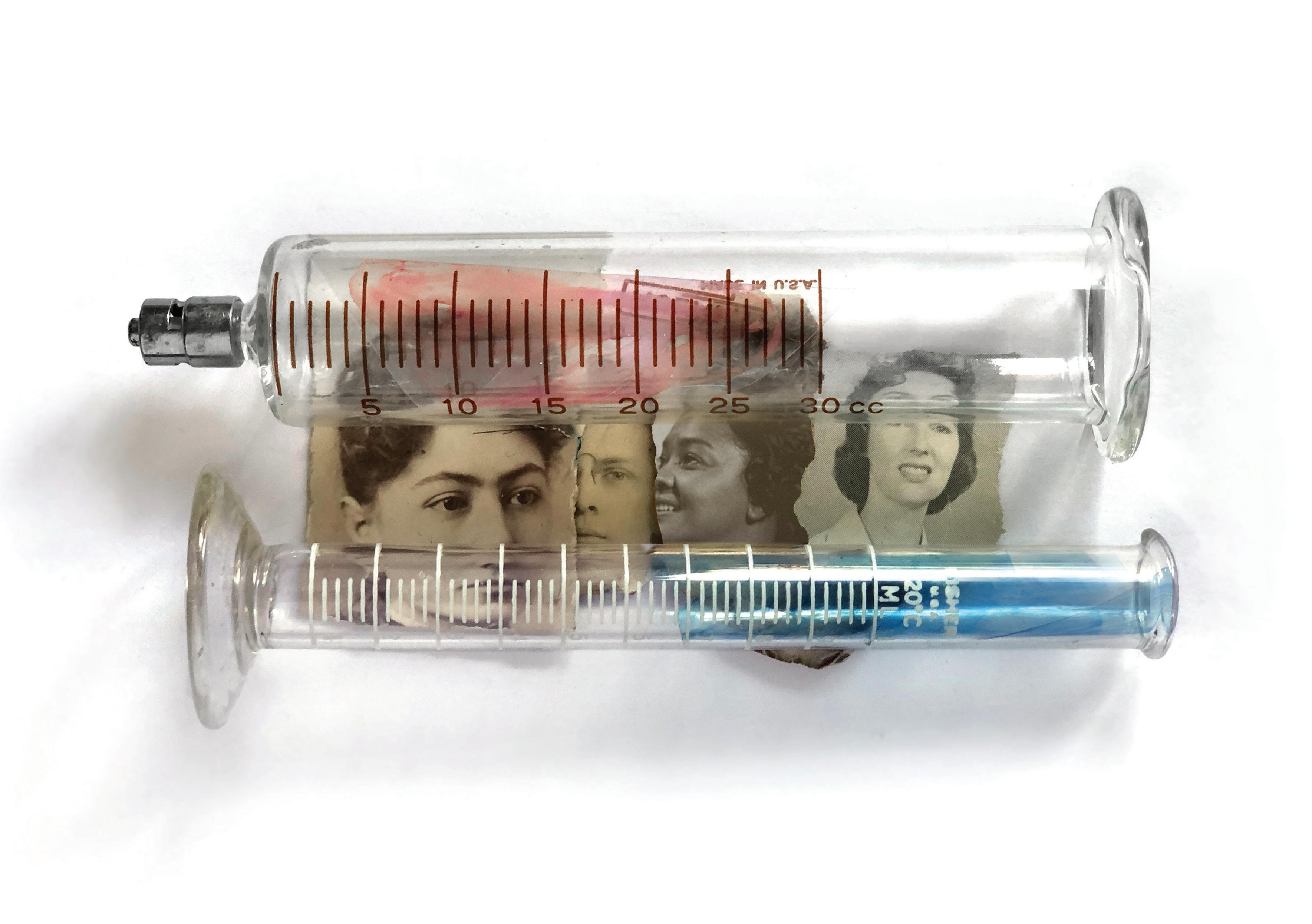
Barnard Honors the Lost Women of Science
President Beilock spoke with the producers of a new podcast celebrating the accomplishments of women in STEM
by Solby Lim ’22
On November 3, President Sian Leah Beilock hosted New York Times technology and healthcare reporter Katie Hafner and Memorial Sloan Kettering bioethicist Amy Scharf for an on-campus/online event to discuss the launch of their new podcast, Lost Women of Science. Scharf and Hafner are the podcast’s executive producers and the founders of the Lost Women of Science Initiative, a nonprofit organization that’s partnered with Barnard to empower young women and girls to pursue STEM careers. The event was part of the Barnard Year of Science, a campuswide celebration of everything related to science, technology, engineering, and math at the College.
President Beilock moderated the discussion and connected the podcast’s mission to Barnard’s advancements in STEM fields. “Highlighting what women have contributed to science in the past, thinking about what they’ll contribute in the future, both at Barnard and beyond, is something that’s really in line with what [the College] is doing,” President Beilock said. “We’re so excited to partner with Amy and Katie to hear about what they’ve done on the podcast.”
The podcast lays out reported narratives on women scientists who made groundbreaking achievements in their fields yet have gone largely unacknowledged for their pivotal work. “Part of our mantra is that for every Rosalind Franklin or Marie Curie, whose story has been told, there are scores of women — these amazing scientists — whose stories haven’t been told,” said Hafner. “And we’ve accrued a database of between 150 and 200 women whose stories deserve to be told.”
This cohort is made up of scientists from diverse backgrounds and represents a wide cross-section of disciplines, from math and physics to botany and computer science. The podcast kicked off its inaugural season with the story of Dr. Dorothy Andersen, a pediatric pathologist who, in the 1930s, helped to identify cystic fibrosis. Each subsequent season will shine a spotlight on a seminal scientist whose work has largely flown under the radar.
The goal, Scharf said, is to at once honor the past and chart a new path for the future. “The Lost Women of Science Initiative is a dual mission. It’s not only to tell the stories of these women whose stories must be told, but in telling them we hope to then help create relatable role models who can inspire girls and young women to begin the STEM pipeline and if they’re in the STEM pipeline, to persevere through.” B
STEM at Barnard: By the Numbers
More than ever before in the College’s 132-year history, young women are pursuing STEM-related fields at Barnard, from research in the lab to coursework across disciplines. Here’s the data to prove it.
34% of the Class of 2021 were STEM majors, compared with about 26% nationally. ● 36% of Black, Latinx, and Indigenous scholars from the same class year, who are significantly underrepresented in the field, majored in STEM at Barnard, compared with about 23% nationally. ● 10% of each Barnard graduating class enroll in medical school. ● Barnard ranks #9 in the U.S. in graduating women who go on to earn doctoral degrees in STEM-related fields. ● Since its launch, the Summer Research Institute (SRI) — which includes one of the largest gatherings of women scientists in NYC — has facilitated and funded research opportunities for more than 650 students. ● 84% of recent SRI participants are pursuing an advanced degree or are working in a STEM field, and since 2014, participation in SRI increased by over 100%. ● Columbia student enrollment in Barnard’s natural science courses increased 48% between 2010 and 2019. ● Our two newest programs — Neuroscience & Behavior and Computer Science — are among Barnard’s top 10 most popular majors. Barnard had just four CS majors in 2013 and currently has more than 100 declared CS majors. ● Barnard’s science faculty have been awarded more than $10 million in grants from the National Science Foundation and the National Institutes of Health in the past few years. ● 60% of Barnard’s STEM faculty is female.
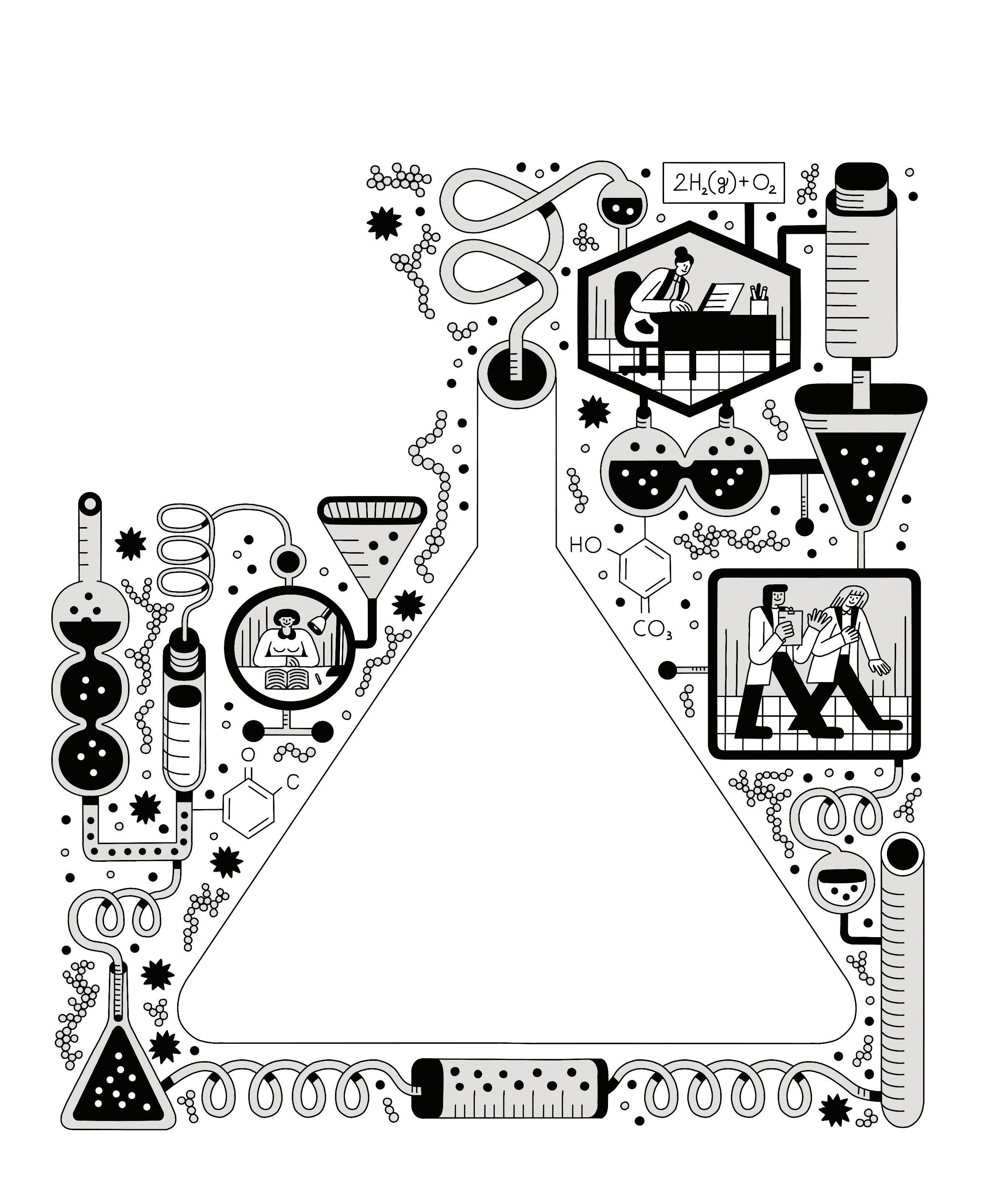
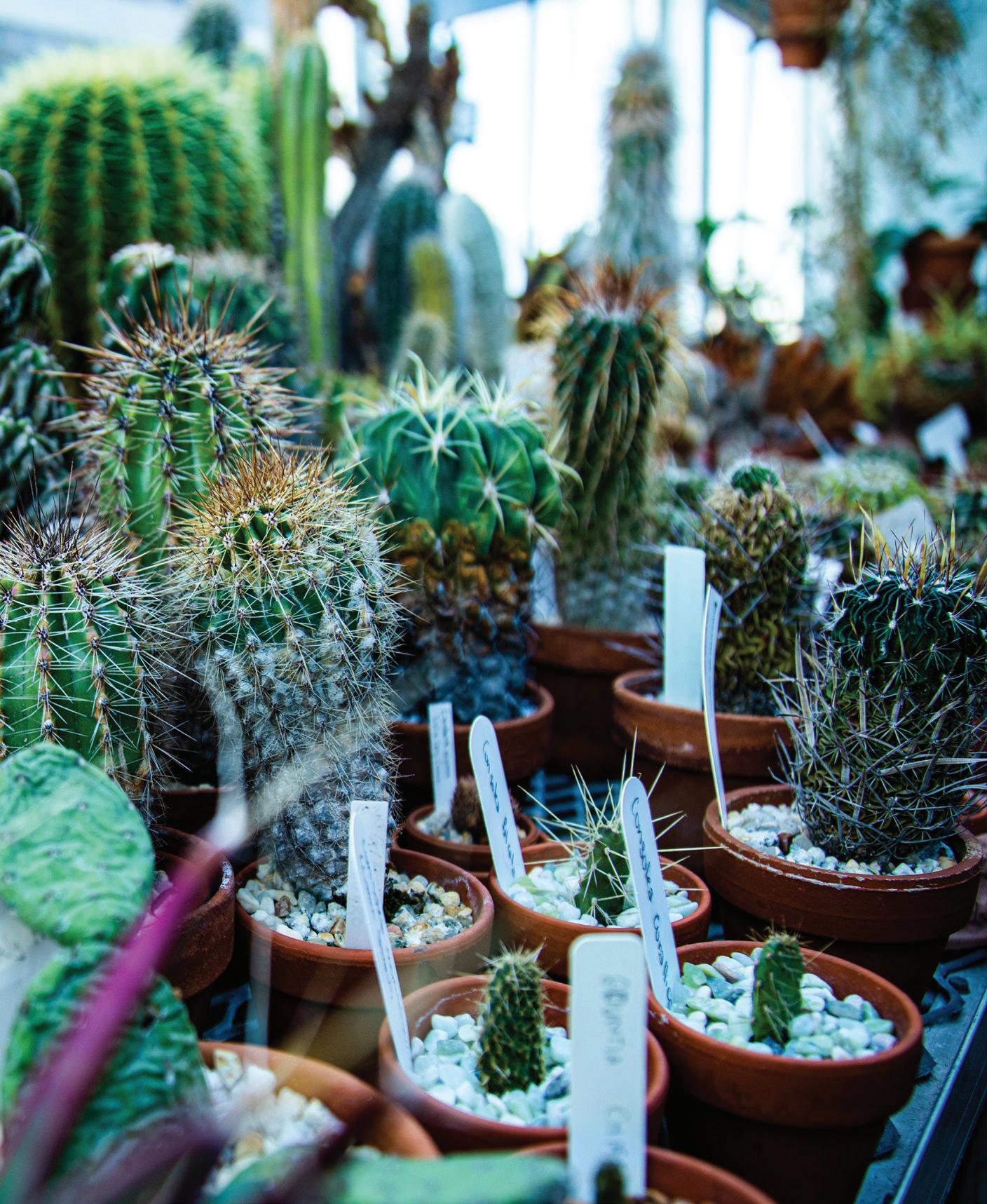
A Greenhouse Gathering
by Nicole Anderson ’12JRN
This November, the Arthur Ross Greenhouse hosted a special open house for scholars from the New York Botanical Garden (NYBG) and Barnard staff. Vanessa Bezemer Sellers, the director of NYBG’s Humanities Institute, invited a cohort of research fellows to join a guided tour of the 2,100-square-foot facility led by Greenhouse administrator Nick Gershberg and Ann Whitney Olin Professor of Biology Hilary Callahan. The event, Gershberg says, marked the first time since the start of the COVID-19 pandemic that the Greenhouse was able to open its doors to outside guests.
“The Greenhouse is part of Barnard’s long tradition of providing the opportunity for students and visitors to interact directly with living plants from around the world,” says Gershberg. “The plant collection and the research possibilities we offer serve as a launch pad for exploration of a diverse range of studies, including not only the sciences but all of the liberal arts.”
For many visitors, it was their first time stepping inside the Greenhouse and exploring the collection of roughly 650 plant species housed in the rooftop glass structure atop Milbank Hall. Gathering near leafy plants and a table of orchids, NYBG fellows learned about the facility’s unique history and resources while sharing their own research projects with Barnard staff.
“Barnard’s Biology Department greenhouse has always had a connection to the New York Botanical Garden. We share many of the same early founders and supporters, and, of course, through Professor Emily Gregory, this botanical tradition is firmly part of our legacy,” says Gershberg. “We are proud to actively maintain this rewarding connection, and, needless to say, we were thrilled to be able to host the contingent from NYBG. We could not think of a better way to recommence our community activities.” B
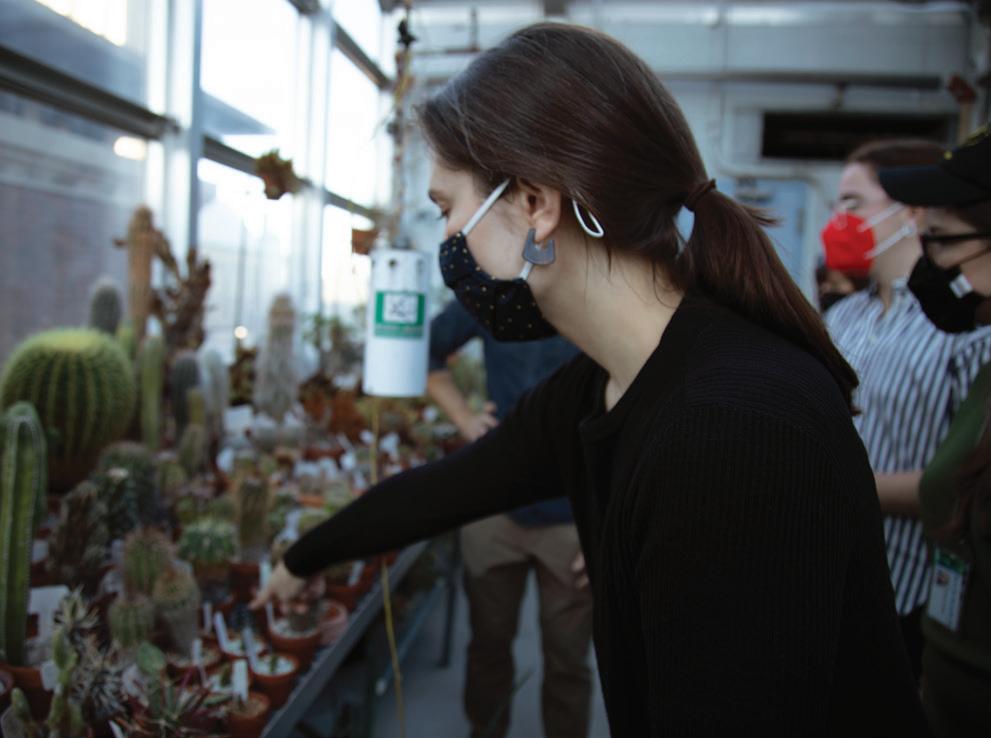
Learning Beyond the Gates
At Barnard, students and faculty have the opportunity to collaborate with a range of leading research institutions, including museums, foundations, and government agencies. This map highlights a selection of our many partner institutions across New York City and beyond.

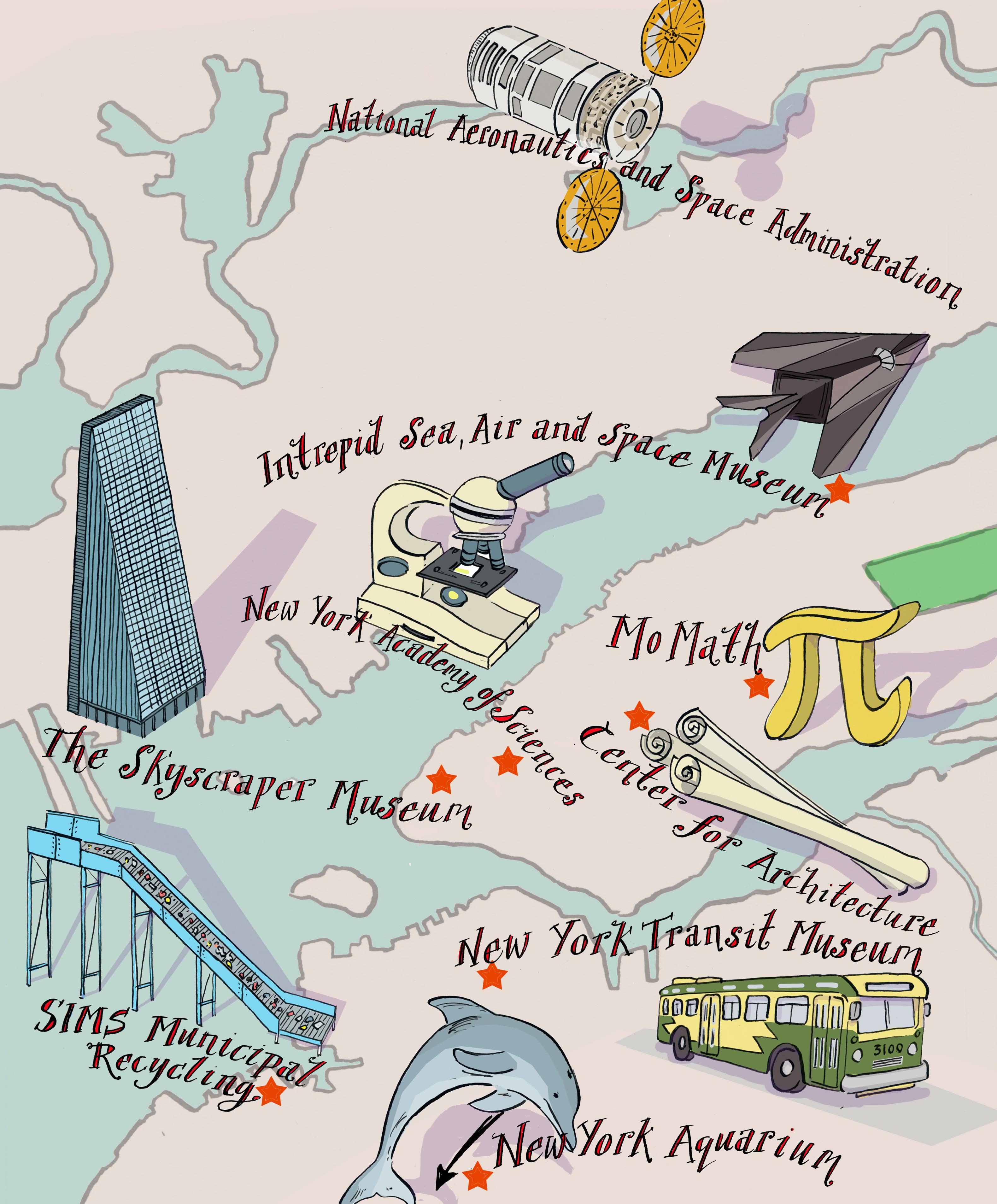
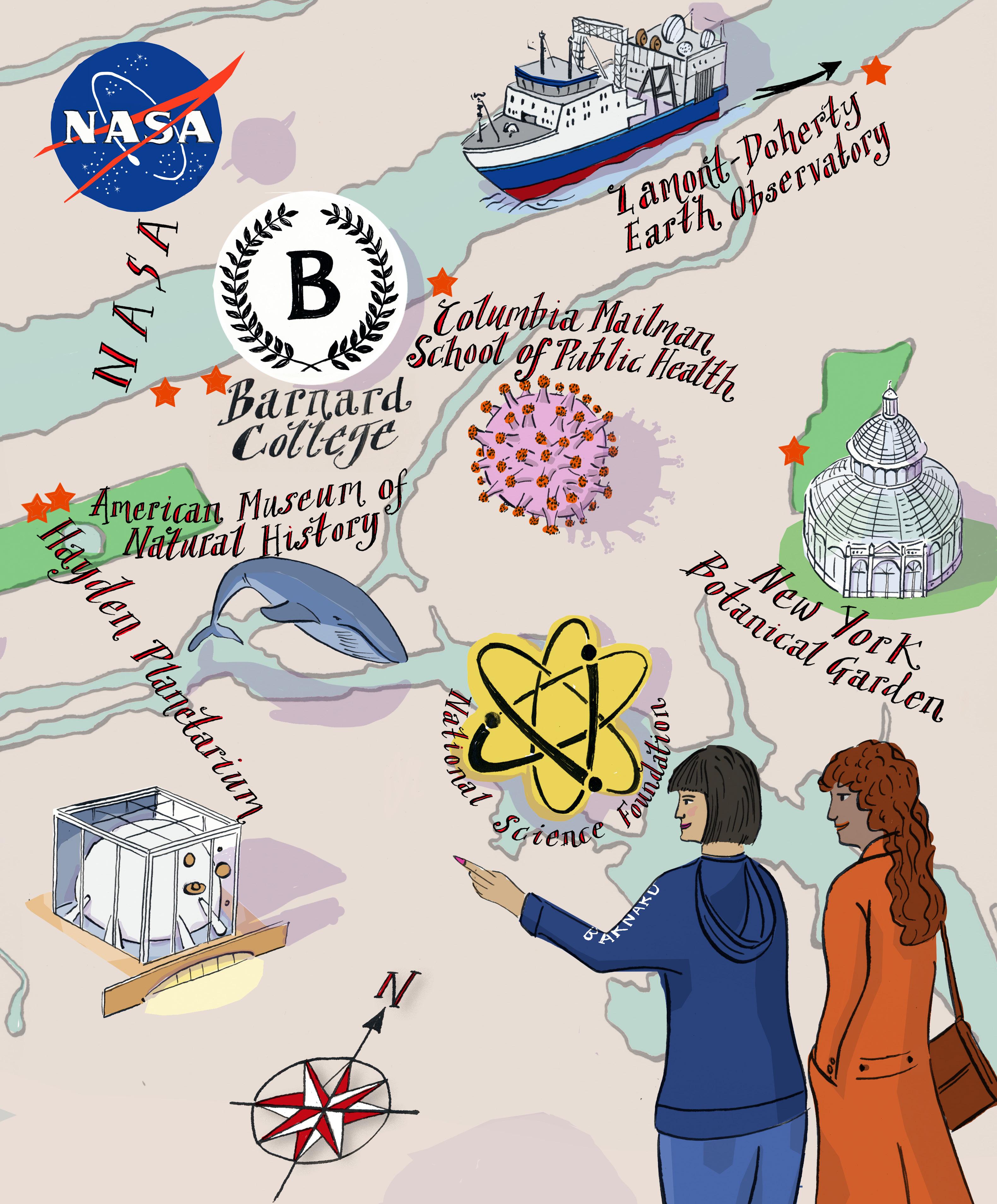
How You Can Support STEM at Barnard
The Barnard Science Fund
A special category of the Barnard Annual Fund launched in the Barnard Year of Science, the Fund supports all aspects of science-related learning, research, and innovation on campus. Gifts of ALL sizes help underwrite: + laboratory equipment and maintenance, + enhanced support for science, technology, engineering, and math (STEM) majors who identify as first-generation and/or lowincome, + faculty and student research, + community engagement initiatives that benefit neighbors in
Morningside Heights and Harlem, + and more
The Barnard Annual Fund
STEM Program Support
As we celebrate the Barnard Year of Science, we hope to further engage the Barnard community in supporting efforts to ensure that STEM not only grows but flourishes at the College, such as: + Research and mentorship experiences for students in STEM, such as Science
Writing Fellows, Barnard Computing Fellows, the Summer Research Institute (SRI), and the Science Pathways Scholars Program (SP)2 + STEM scholarships and internships, which allow us to provide exceptional opportunities to students from all backgrounds + Academic support for STEM departments, which support faculty members as they further their own research and make strides in their respective fields + Endowed faculty chairs in the sciences, which are among the highest honors we can bestow and draw outstanding educators to the College
Altschul Hall Renovations
Barnard’s STEM offerings have significantly expanded, and demand continues to rise. Meeting our students’ needs requires support for capital improvements to Altschul Hall and enhanced STEM programming. For gifts of $250,000+, we would be pleased to discuss commensurate naming opportunities within the renovated spaces. In addition, Barnard will be dedicating a new lab — the Athena Society STEM Lab — in Altschul Hall to recognize planned giving donors who support STEM initiatives and programs.
Give now at barnard.edu/gift
For questions about these and more ways that you can support STEM at Barnard, contact Kate Martinez, Assistant Vice President of Development and Alumnae Relations, at 212.853.8329 or at kmartinez@barnard.edu.




